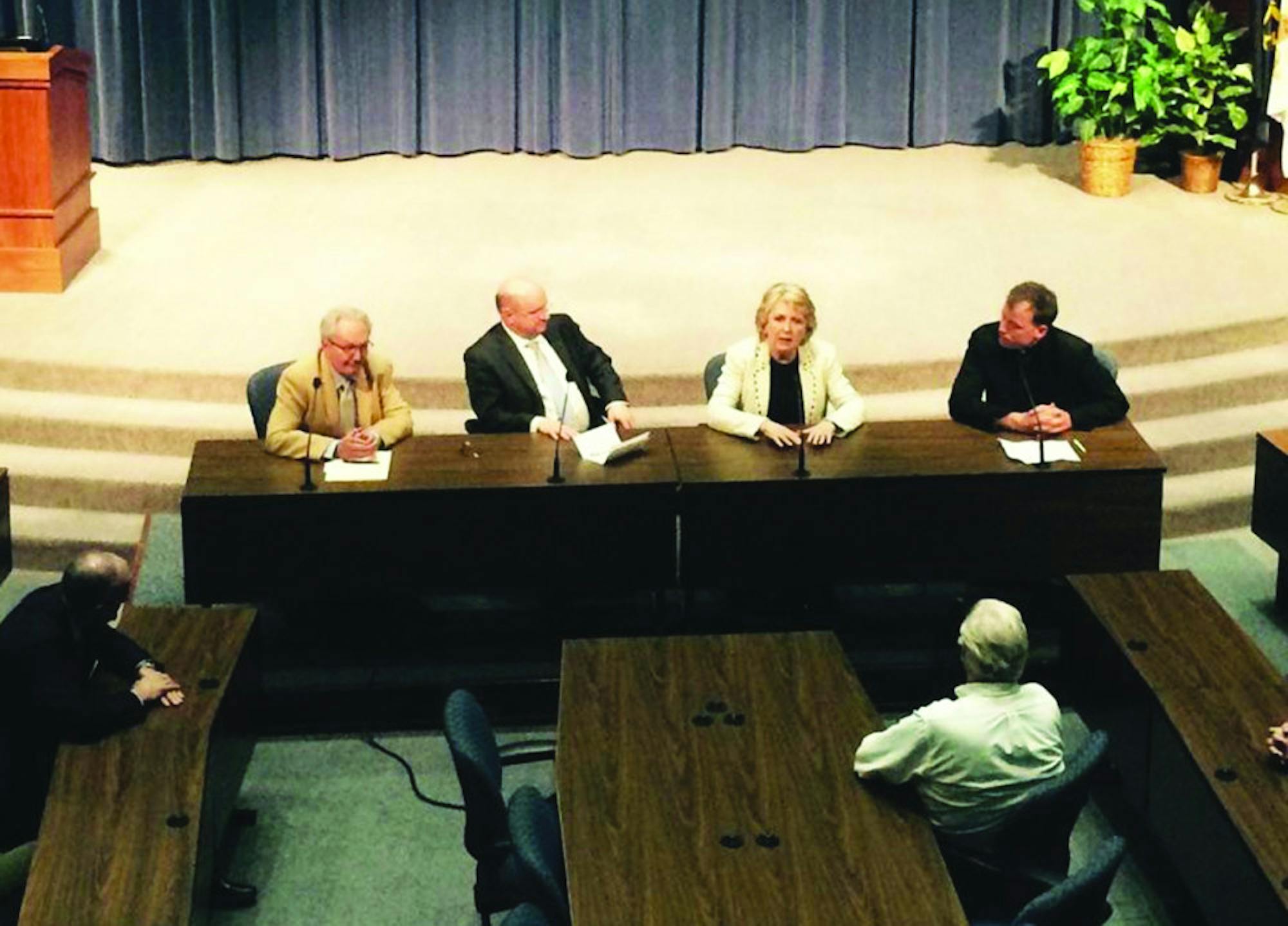Former Irish president Mary McAleese discussed her experiences as a primary advocate for the Irish peace process Monday in the McKenna Hall Auditorium.
As the first president of Ireland, McAleese served two consecutive terms from 1997 to 2011, ruling the nation during the Troubles, a time ravaged by civil war between Unionists, who were predominantly Protestants, and Nationalists, who were predominantly Catholics.
As a leader of a deeply divided nation, McAleese, who was born and raised in Northern Ireland, said the struggle for peace was at the core of her presidency. Describing the theme of her time in office as focused on “building bridges,” McAleese said her role in activism began at an early age.
“I was part of the first generation of young Catholics to have the advantage of upper-level education, and we were now going to apply our brain power to a very dysfunctional society in which Catholics were excluded,” she said.
McAleese said she credited her ability to focus on peace building to her foundation of gospel values.
“I was fortunate the core of gospel values always pulled me back,” she said. “The voices of calm helped me. I was angry enough to go the other way [toward anger].”
McAleese said her strategy to build peace in Ireland involved forging relationships between opposing Protestant and Catholic communities.
“Peace building is essentially about relationship building,” she said. “It starts with a belief — proven to be well-founded — that people can change their minds, which is very important, because otherwise, there would not be a point.”
While it took years to penetrate the core of the sectarian divide, McAleese said she made progress by emphasizing her goals of building and sustaining relationships for the long run.
In April 1998, the Irish government created the Belfast Agreement, ending the civil war. Although McAleese described the agreement as fair and decent, involving huge concessions on both sides, she said it lacked perfection.
A main hindrance to the peace-building efforts is a reluctance to forget the past, McAleese said.
“The demography of Northern Ireland and its social life is still strongly related to the past,” she said. “Ninety-three percent of all people inhabit areas essentially defined by their religion, [making] social integration very difficult.”
McAleese said the current sectarian environment of Northern Ireland lacks opportunity for truly meeting and befriending one another. She said the current situation in Ireland is reflective of the recent Scottish referendum.
“We are working toward a referendum, and when it happens, I hope it happens like the Scottish referendum, a democratic dialogue,” she said.
Whatever future Ireland holds, McAleese said her greatest wish is that it is conducive to the human dignity of all its inhabitants.
Editor's Note: An earlier version of this article misquoted McAleese as saying she would not favor an Irish nationalist approach if there was a referendum on the future of Northern Ireland. In fact, she was responding to the idea of an independent Northern Ireland. The Observer regrets this error.













